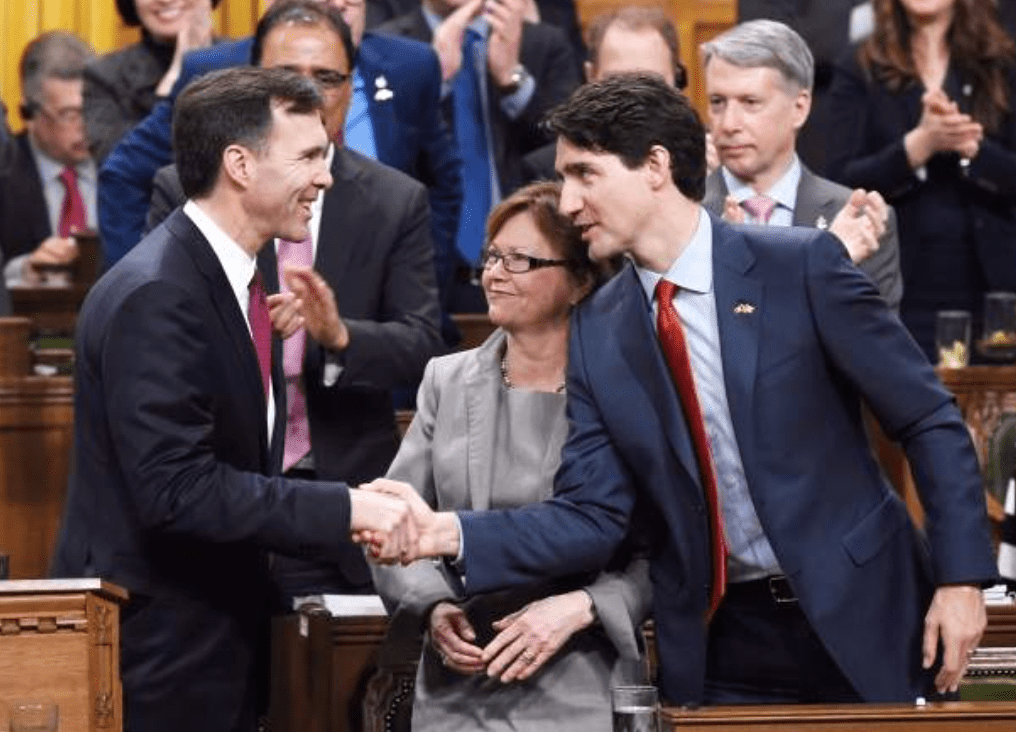Over the past few weeks, you may have heard the Conservatives decrying a $7 billion "slush fund" that the Liberals apparently created for themselves in the budget. You may have wondered what the childish meltdown that occurred in the House of Commons a few weeks ago with NDP MP Daniel Blaikie shouting at the Speaker after one of his points of order was shot down, which the Conservatives joined in to turn into an attempted filibuster. Now that the Estimates have passed the Commons and have reached the Senate, it may be worth taking a moment to step back and look at just what happened.
First things first. The Estimates process are at the heart of what Parliament is all about the government requests funds to operate from Parliament, because that's who controls the purse strings. The Estimates are how those requests for funds come before the Commons, and they are divided up into the Main Estimates, which are usually tabled at the beginning of the fiscal year, and at various points later in the year, Supplementary Estimates are tabled to ask for more program funds, and to refine the asks that were made in the Main Estimates. Over the decades as the Estimates and the budget cycle drifted apart, in part because the budget is a political document and there are politics played around when it is revealed, which created a disconnect between what was in the Main Estimates and in the budget document, and the government would start to reconcile those with the Supplementary Estimates in the fall.
But more than just the disconnect between the budget and the Estimates, there also grew to be a disconnect between the Estimates and the Public Accounts, which are published at the end of the fiscal year to show how the money was spent. Part of the problem was that they diverged in terms of the accounting systems used between them, and it became nigh impossible to reconcile the Estimates and the Public Accounts as a result. Once upon a time, MPs could look to see that what spending was announced in the Estimates got spent in the Public Accounts, and that allowed them to do their due diligence. Well, those days have long passed, and with the creation of the Parliamentary Budget Officer, MPs have pretty much fobbed all of that work onto him to scrutinize the Estimates on their behalf, much like the Auditor General deals with seeing how the Public Accounts reflected good spending practices.
As if this disconnect wasn't enough, rules crept into our Parliamentary system that ensured that if the committees charged with studying the Estimates didn't report back by a certain date, that those Estimates were deemed to be adopted anyway. This was to ensure that they didn't hold them hostage, but it eliminated the kinds of proper leverage that MPs have over the government in exercising control over the public purse. All of this is to say that our whole Estimates cycle in Parliament is horribly, horribly broken.
When they were elected in 2015, the current Liberal government had promised reform of those Estimates in order to get them back to some semblance of normalcy. Doing this with a reluctant (and indeed sclerotic) civil service is difficult, but this year, the Liberal government did manage to get a better alignment in terms of timing, so that the budget came out before the Main Estimates and allowed the Main Estimates to better reflect what was in the budget. But it's a work in progress, and because the Treasury Board process is still slow to get many of the approvals in place before the Estimates were tabled, the government decided to do a bit of a work-around this year. Because they knew they couldn't get everything through in time, they created a $7 billion fund to get a head start on spending announced in the budget, while allowing those programs to still go through the Treasury Board process. All of the spending was outlined in the budget annex as to how it would be spent, but it was an unusual loophole in the Estimates process. And this is where the trouble began.
Former Parliamentary Budget Officer Kevin Page weighed in that this kind of fund was not accountable to Parliament, but the government countered that it was, because all of the spending was laid out in the budget spending that $7 billion on other things would be tantamount to unauthorized spending. The Conservatives immediately pounced, calling this $7 billion a "slush fund" that the government could spend on whatever it wanted, and if one needed proof that they knew what they were talking about, one could point to the border infrastructure fund that the Conservatives put into place for the G8 and G20 meetings in 2010, which famously got spent on gazebos in Tony Clement's riding.
For the NDP's Daniel Blaikie, he considered this an undermining of Parliament's oversight and scrutiny of spending, but along the way, he made a number of erroneous comparisons, like saying that the lesson from the Auditor General on the Phoenix fiasco was without proper oversight there is spending and waste. (I would argue the actual lesson with Phoenix was that civil servants were too afraid to tell the government of the day that the budget was inadequate to the scope of the project, so they cut functionality to meet the budget to the point where it no longer functioned). Other Conservatives claimed that there would be no accountability for the $7 billion because nobody would see how it is spent (again, not true because it will come out in the Public Accounts).
And this is where the public meltdown happened. Blaikie tried every procedural tactic he could in order to delete this fund from the Estimates, and he failed in the House, he failed at committee because his delays triggered the "deemed" rule, and Thursday night's vote-a-thon was related to the Estimates, so those inevitably all passed. The government did make a couple of changes to the language in the spending bill to clarify that the spending had to follow the budget annex, but now we'll see if any senators object.
If anything comes out of this whole affair, one hopes that it will be a spur to the government to carry on with their Estimates reform so that they won't have to engage in this drama again, but that may be easier said than done. I do think that most of the concerns were overblown, not because I don't think the Estimates are important quite the opposite but rather because the status quo of having wildly inaccurate Main Estimates that didn't follow the budget is so horribly broken that this imperfect solution of the government's, with its budget annex table, was a vast improvement, even as imperfect and procedurally inappropriate as it was. If anything, the government should be put on notice that they had better get things in shape for next year's budget and Main Estimates, or else this will count against them as yet another broken promise.
Photo Credit: Vancouver Sun







